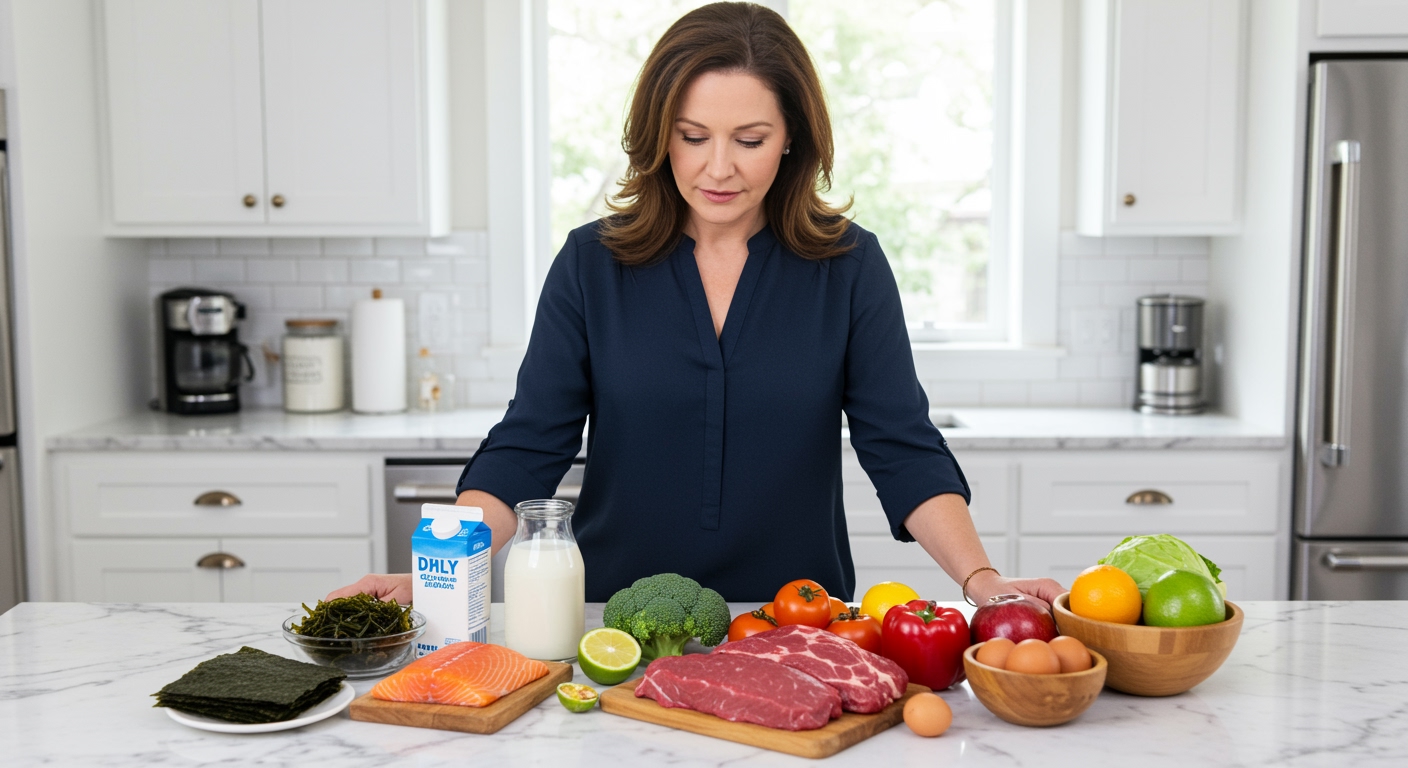✪ Key Highlight: Japanese research reveals age and gender create distinct dietary patterns that require personalized nutrition approaches.
Introduction
Your food choices are not random decisions you make at the grocery store.
New research from Japan shows that your age and gender secretly control what foods end up on your plate in ways most people never realize.
Hi, I’m Abdur, your nutrition coach and today I’m going to analyze this groundbreaking study that examined how 2,743 Japanese employees eat differently based on their age and gender.
What Did This Japanese Study Actually Discover?
Professor Katsumi Iizuka from Fujita Health University led a team that analyzed the eating habits of employees aged 20 to 59 years old.
The researchers divided participants into four age groups and used advanced statistical methods to measure dietary diversity.
They discovered that women generally had more diverse diets than men across all age categories.
The most striking finding was that younger men had the least varied diets while older women enjoyed the most diverse food choices.
As people aged, their diets naturally became more diverse with increased consumption of fruits, seaweed, and dairy products.
The study used the Shannon index, a mathematical tool that measures biodiversity, to quantify how varied each person’s diet was.
✪ Fact: This is the first study to examine how age and gender combine to influence dietary patterns in Japan.
How Do Age Groups Eat Differently?
The research revealed four distinct dietary patterns based on age and gender combinations.
Women aged 20-29 showed one pattern, while women 30 and older displayed completely different food preferences.
Men aged 20-39 formed another group, and men aged 50-59 represented the fourth distinct pattern.
Older participants consumed significantly more fruits, milk, and seaweed compared to younger groups.
Younger men showed the highest consumption of meat and eggs, suggesting their bodies naturally crave protein-rich foods.
Fish intake varied dramatically between groups, with some age-gender combinations eating much less fish than others.
The researchers found that meat, fish, eggs, and fruit were the key foods that separated different demographic groups most clearly.
✪ Pro Tip: Track your own eating patterns to see if they match your age and gender group’s typical preferences.
Why Do Women Have More Diverse Diets?
The study consistently showed that women across all age groups maintained more varied diets than their male counterparts.
This pattern suggests that women may have different nutritional instincts or social influences that drive them toward dietary diversity.
Women might be more willing to try new foods or more conscious about including different food groups in their meals.
Cultural factors in Japan may also play a role, as women traditionally take more responsibility for meal planning and preparation.
The research showed that this gender difference becomes even more pronounced as people age.
Older women demonstrated the highest dietary diversity scores, suggesting they develop increasingly sophisticated eating patterns over time.
✪ Note: Dietary diversity is linked to better nutrient intake and reduced risk of chronic diseases.
What Does This Mean For Your Health?
Professor Iizuka emphasized that understanding these patterns is crucial for promoting better health and preventing disease.
The research suggests that nutrition advice should not follow a one-size-fits-all approach.
Instead, dietary recommendations should consider the unique needs and natural preferences of each age and gender group.
Young men might benefit from encouragement to include more diverse foods in their diets beyond meat and eggs.
Older adults naturally gravitate toward foods like fruits and dairy, which provide important nutrients for aging bodies.
The study also connects to previous research showing that traditional Japanese dietary patterns help slow biological aging in older men.
This suggests that following age-appropriate eating patterns based on your demographic group could support longevity and health.
✪ Pro Tip: Work with nutrition professionals who understand your specific age and gender needs rather than following generic diet plans.
The Bottom Line
This Japanese research proves that your age and gender create powerful influences on your food choices that go far beyond personal preference.
Your body knows what it needs at different life stages, and fighting against these natural patterns might work against your health goals.
I would love to hear your thoughts about how your own eating habits have changed over the years or differ from others in your family – please share your experiences in the comments below.
References
At NutritionCrown, we use quality and credible sources to ensure our content is accurate and trustworthy. Below are the sources referenced in creating this article:
- Medindia: Dietary Patterns Shift with Age and Gender in Surprising Ways
- News Medical: Study reveals how age and gender influence dietary patterns in Japan
- PubMed: Age and Gender Influence Dietary Patterns Research
- Frontiers in Nutrition: Traditional Japanese Diet and Biological Aging
- Medical Xpress: Age Gender Food Dietary Patterns Study





